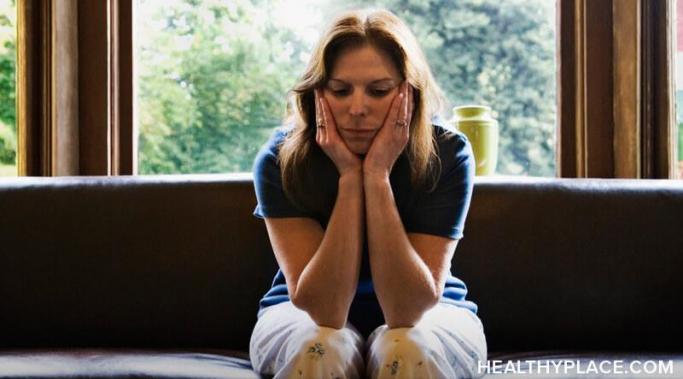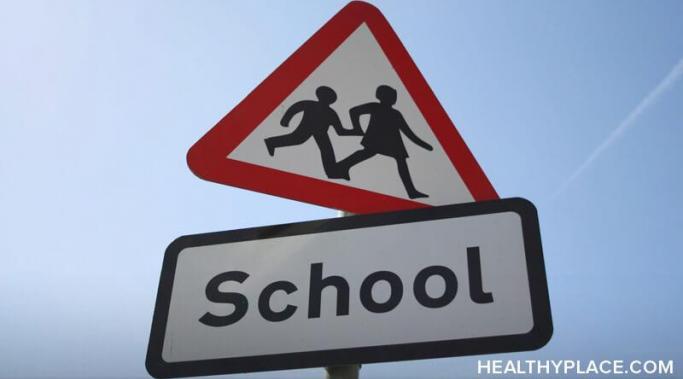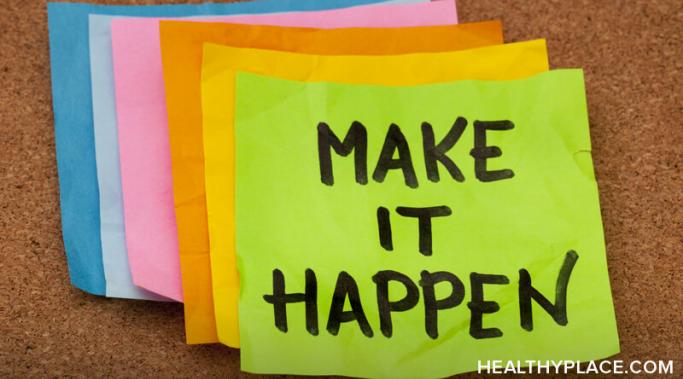The title of this blog is "Coping with Depression." In the past, I've used it to talk about ways to feel productive, beat procrastination, and improve relationships during a depressive episode. But the reality is that some days, "coping" just means surviving through the worst days. So, in honor of World Suicide Prevention Month, I would like to offer some simple tips on how to get through when "getting through" seems impossible.
Depression Symptoms
Depression relapses happen. This is a truth that everyone in depression recovery must accept. But not all relapses are created equal, and there are things you can do to mitigate or even pre-empt a relapse before it becomes a mental health crisis. The key is learning how to recognize the earliest symptoms of depression relapse and treating them with your very own mental health first aid kit before more serious intervention is required.
We're taught that playing make-believe is for children -- that as adults, our feet should be firmly rooted in reality. But when dealing with reality becomes too much to handle, a little foray into childish fantasy can be incredibly comforting and very beneficial for our mental health.
The iceberg theory is a frequently cited model of behavior which states that a person's behavior can only be properly understood in the context of the factors that caused it. What a person does is "the tip of the iceberg"-- what we don't see are the emotional, social, cultural, and other factors that lie beneath the surface and cause that behavior.
Parenting is always a divisive topic. Every generation thinks it has found the trick to child-rearing, and every new parent vows to avoid the mistakes their own parents made in raising them. Attitudes towards discipline, attachment, nutrition, education, and play are constantly evolving, but one thing that never seems to change is the idea that crying is a bad thing and that the goal when a child cries is to get them to stop at any cost. This attitudinal hangover from the days when children were to be seen but not heard is incredibly worrying and something we should resist as parents in order to safeguard our children's mental wellbeing.
I missed my last scheduled blog post due to illness, but in truth, I was relieved because aside from the gastric flu wreaking havoc with my digestive system, I didn't have anything to talk about. I was (and am) doing well. When I sat down to write this week's piece, I had a similar bittersweet realization. This blog is "Coping with Depression," but at the moment, I don't feel as though I am "coping" with anything in particular. I am, for all intents and purposes, recovered from depression. Does that mean I should give up writing this blog? I think not.
Childhood bullying caused me to have a fairly miserable time at school. I was bookish, physically inept and socially awkward. Add to that the headgear and a built-up shoe, and you had a sight that would make any school bully drool.
I have an idea for a children's book, but anxiety-induced procrastination is in the way. I've been saying for years that I want to write a book, and last week inspiration struck. I am telling you this because I know that if I don't, the idea will remain just that: an idea. And I will continue to be what I've been for years: someone who says they want to write a book, writes a few chapters, then leaves them to gather dust in a long-forgotten folder on a laptop. I am a pathological procrastinator, but I believe I have found a way to tackle my anxiety-induced procrastination and share it here in the hopes that it will help you, too.
I have been lying. I have spent the last six months writing this blog about the importance of letting go of shame and talking openly about the realities of living with depression, yet recently in my private life, I have forgotten to practice what I preach. I have become too invested in the idea of myself as someone who has "recovered" and stopped acknowledging my bad days. This is both insincere and unhealthy. Bad days will happen, and learning how to deal with them is a vital part of depression recovery.
Have you ever noticed that when you are feeling depressed, at least one person in your life tells you to "stop feeling sorry for yourself?" Depression and self-pity seem to go hand in hand, but they are not the same thing. Experiencing self-pity is significantly different from being blue. Here's how you can tell the difference.









